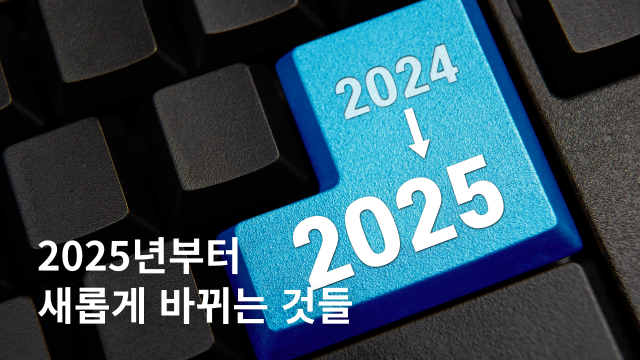
Seoul, South Korea – A comprehensive package of 97 legal amendments is set to take effect across South Korea this April, ushering in significant changes designed to bolster support for student parents, intensify the fight against digital sexual offenses targeting minors, and promote environmentally conscious transportation. These reforms address critical societal needs and reflect the government's commitment to safeguarding vulnerable populations and fostering a sustainable future.
Greater Flexibility for Student Parents Through Expanded Childcare Leave
Beginning April 23rd, university students in South Korea who are also parents will gain greater flexibility in managing their academic and family responsibilities thanks to expanded eligibility for childcare leave. Previously, student parents could only apply for a leave of absence for childcare if their child was eight years old or in the second grade of elementary school or younger. The newly revised law extends this age limit to 12 years old or those in the sixth grade of elementary school or younger.
Furthermore, the criteria for students with children requiring long-term care due to physical or mental disabilities have been significantly broadened. The previous regulations limited coverage to children up to the elementary school level. However, the amended law now includes children up to the age of 16, equivalent to the first grade of high school.
This progressive change is anticipated to provide crucial support for university students balancing the demanding roles of academic pursuits and raising children. It offers increased flexibility and may allow students already on childcare leave when the law takes effect to extend their leave periods. This reform acknowledges the challenges faced by student parents and aims to create a more supportive educational environment.
** Enhanced punishment and Procedures to Combat Digital Sexual Offenses Against Minors**
The South Korean government is demonstrating a resolute commitment to protecting children and adolescents from the growing threat of digital sexual exploitation with significantly enhanced punishment taking effect on April 17th. The use of technologies such as deepfakes to coerce or threaten minors into producing or distributing sexual content will now be met with substantially harsher punishments.
Under the new regulations:
Threatening a child or adolescent using digitally altered or created sexual content will be punishable by a minimum of 3 years of imprisonment.
Coercing a child or adolescent to produce or distribute sexual content using such methods will result in a minimum of 5 years of imprisonment.
These penalties mark a significant increase from the previous minimum sentences of one year for threats involving sexual exploitation material and three years for coercion, underscoring the government's firm stance against the digital exploitation of youth.
In conjunction with these enhanced punishment, the revised laws also introduce intensified investigation procedures and enhanced support systems for victims of digital sexual offenses. In cases involving children and adolescents where urgent intervention is deemed necessary, investigators will be authorized to conduct "emergency covert investigations" without requiring prior approval from higher police authorities. This measure aims to facilitate quicker and more effective responses to protect victims in critical situations.
Moreover, upon confirming the dissemination of child sexual exploitation material, investigators will be mandated to immediately request the Korea Communications Standards Commission to delete or block access to the illegal content. This swift action is intended to minimize the spread of harmful material and prevent further victimization.
Victim support will be significantly expanded nationwide starting April 17th through the establishment and operation of "Digital Sexual Crime Victim Support Centers" across the country. Support for the deletion of illegally filmed content will be extended from the national level to local governments, ensuring broader accessibility for victims seeking to remove damaging material online. To further prevent secondary victimization through the spread of personal information, both national and local authorities will offer assistance in deleting identifying details such as names, ages, addresses, schools, occupations, and photographs from online platforms.
Push for Cleaner Air with the Introduction of Low Emission Vehicle Zones
As part of a concerted effort to promote eco-friendly transportation and improve air quality, South Korean authorities will be empowered to designate "Low Emission Vehicle Zones" starting April 23rd. Provincial governors, mayors, and county heads will have the authority to establish these zones, where only low-emission vehicles, including electric cars, hydrogen cars, and hybrid vehicles, will be permitted to operate. This initiative aligns with South Korea's broader environmental goals and its commitment to reducing air pollution in urban centers.
Exemptions will be made for essential vehicles such as fire trucks and ambulances, as well as vehicles used by individuals with disabilities, ensuring that critical services and accessibility are maintained. Owners of non-low-emission vehicles found operating within designated zones will be subject to a fine of 100,000 Korean Won. This policy aims to incentivize the adoption of cleaner transportation options by making the use of older, more polluting vehicles less convenient in designated urban areas. The implementation of these zones is expected to contribute to a healthier environment for residents by reducing harmful emissions.
These comprehensive legal reforms signify South Korea's proactive approach to addressing pressing social challenges, providing greater support for vulnerable populations, and fostering a more sustainable future. For more detailed information on these and other legal amendments, the public is encouraged to visit the National Law Information Center website at www.law.go.kr.
[Copyright (c) Global Economic Times. All Rights Reserved.]






























